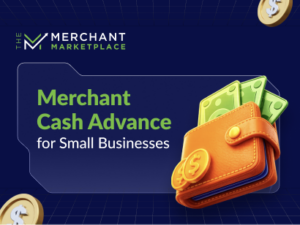“Retail is detailed, and every detail matters,” as the retail marketing guru James Gulliver once said. Running a retail store is tight because you’re always trying to keep tabs on your stock, delight customers, and maintain the latest trends, knowing full well that one minor slip can tumble everything.
Here’s the deal: Cash flow gaps can escalate fast. Whether launching, expanding, or staying afloat, financing isn’t just survival—it’s your growth engine.
Here we’ll unpack the best financing options for retail store owners. So, let’s dive in.
1]. Financing Options for Retail Store
Explore the best Financing Options for Retail Store owners, including loans, lines of credit, credit cards, merchant cash advances (MCA), inventory financing, and SBA loans. Find the right funding to grow your business effortlessly!
Retail Business Loans- A one-shot loan to be paid back on a fixed-term basis, best for large expenses such as expansion or equipment purchases.
Business Line of Credit – This is where you’ll get quick access to cash that can be withdrawn pretty much every time there is a need, just like a credit card.
Inventory Financing – A sure way for your business to buy and stack up inventory that will eventually be sold during peak seasons.
SBA Loans – A government-backed business loan that hooks you up with low rates, long payback terms, and an easier approval process through legit lenders.
Merchant Cash Advances – A certain amount of money given as an advance against future credit card sales, thus repaid daily from the cash flow.
Understanding these to find which financing route best suits your business.
2]. What Is Retail Inventory Financing?
Imagine this: Your bestselling winter coats arrive late, and your supplier demands upfront payment. Here’s where retail inventory financing comes in—a loan specifically designed to purchase inventory. Think of it as a “stock now, sell later” lifeline.
Two typical forms of inventory financing are:
- Asset-Backed Loans- This financing mechanism involves advances against collateral of inventory value.
- Purchase-Based Loans- In such cases, lenders extend financing based on future sales, which is repaid as the inventory is sold.
How it works:
- Lenders provide funds to buy inventory.
- The inventory itself acts as collateral.
- Repayment terms sync with your sales cycle (e.g., 6–12 months).
For example, MMP offers inventory loans with no personal collateral—ideal for small retailers wary of risking personal assets.
Stock up now, pay later—check out how MMP has funded the Retail Industry!
3]. Who Benefits from Retail Inventory Financing?
Retail inventory financing is a total game-changer for businesses that:
Deal with sales that go up and down like a rollercoaster (think holidays or summer vibes). Need to stack up on inventory affordably by buying in bulk.
It also comes in handy if you’re trying to:
Drop new products without draining your bank account. Or if you’re already killing it sales-wise but need quick cash to keep operations running and pay suppliers. This is straight-up a smart move.
4]. Advantages of Retail Business Loans
Retail business loans provide several benefits, including:
Improved Cash Flow – Loans help bridge cash flow gaps during slow sales periods.
Growth Opportunities – Allows businesses to expand, renovate, or invest in marketing.
Inventory Stocking – You get to stock up shelves before peak sales seasons.
Flexible Repayment Options – The different loan structures allow the business to repay in a manner that syncs with its revenue cycle.
This way, a retailer can ensure a sustainable operation along the growth path.
5]. Additional Financing Choices for Opening a Retail Store: Types of Business Loans for Retail Stores
The thing is, you might need more money than what you get in an inventory loan if you are starting a retail store. Look at these loan options:
- SBA Loans – These loans are great for fast-growing startups and small businesses, with attractive interest rates.
- Short-Term Business Loans – You can get these in hours or days with a short repayment period, these loans can easily be approved for immediate needs.
- Equipment Financing – Ass a retailer, you can purchase necessary equipment, with point-of-sale (POS) systems.
- Working Capital Loans – Pay for utility bills and payroll on a day-to-day basis.
6]. Top Business Loan Providers for Retail Stores: Online Financing Options to Consider
Digital lenders offer speed and simplicity. These are your best options to consider:
- Merchant Marketplace – Highly specialized in merchant cash advances and retail loans, MMP gives you an edge in quickly securing funding based on card sales.
- BlueVine – Access a flexible credit line of up to $250K for inventory, payroll, or any expenses with rapid approval.
- OnDeck – Short-term loans and credit lines with same-day approval—great for seasonal needs or stock replenishment.
- Fundbox – Ideal for startups, offering credit lines up to $150K with minimal requirements.
- Fora Financial – High-limit loans up to $1.5M, accessible even for borrowers with bad credit.
So why MMP?
We provide same-day funding for retail store owners, helping you secure fast, hassle-free financing without long approval waits. –Apply for an MCA Today!
Evaluate Your Retail Financing Choices
When considering loans, see if the payment schedule aligns with your cash flow. A mismatch could strain your finances, making it harder to manage daily operations.
Beware of hidden charges, including origination, prepayment, or late payment fees; these additional costs can accumulate quickly and affect the true borrowing cost.
It’s essential to measure if, ideally, the loan will give you the ability to expand your business or fill up a short-term gap. Also, consider how fast money is needed and whether the lender’s approval process can accommodate your schedule.
FAQs
1. What are the retail finance options?
Some of the best financing options for retail store owners are lines of credit, SBA loans, inventory financing, merchant cash advances, etc. Rile out which one addresses best for your specific needs, let it be cash flow management or large purchase financing.
2. What is the best source of finance for a retailer?
It depends! Startups may prefer crowdfunding, while established stores benefit from term loans. However, MCA stands as the best option for Startups to get started.
3. How do you offer financing options to customers?
Considering Merchant Cash Advances offered by MMP, where payments can be made based on daily sales. The fastest way to get funds with no hidden costs.
4. What are the three methods of financing?
- Debt Financing – Loans and credit lines that are to be paid back with interest.
- Equity Financing – Giving ownership rights to investors for capital.
- Alternative Financing – Merchant cash advance, crowdfunding, and grants.
Final Thoughts
Financing means more than just staying alive; it means flourishing. Whether you’re running an aspiring startup or are a well-set-up seller, Merchant Marketplace (MMP) will stand beside you as you wade through the maze of finance.
Ready? The next step is to turn those retail dreams into products on the shelf.




